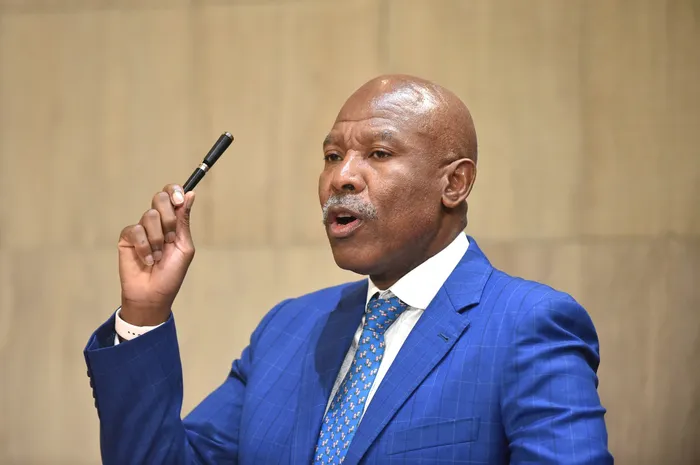
South African Reserve Bank governor Lesetja Kganyago. South Africans hoping for lower loan repayments will be disappointed as the Reserve Bank keeps rates unchanged. What this means for your bond, car finance and monthly budget in 2025.
Image: Thobile Mathonsi / Independent Newspapers
South Africans hoping for a drop in their loan repayments will have to wait a little longer.
The South African Reserve Bank’s (Sarb) Monetary Policy Committee (MPC) decided this week to keep the repurchase rate unchanged at 7%, which leaves the prime lending rate steady at 10.50%.
The decision means there will be no immediate relief for households already stretched by high borrowing costs.
Monthly instalments on mortgages, car loans and other credit linked to prime remain at elevated levels, tightening the squeeze on disposable income.
This means that a R1 million bond taken over 20 years at the current prime rate still costs about R9 984 a month.
With the Sarb choosing not to cut, that figure remains unchanged. A R2 million bond remains close to R19 968 a month, with no savings passed on to consumers.
Shoppers had hoped easing inflation, now closer to the bottom end of the Sarb’s 3 to 6% target band would convince the bank to trim rates and provide breathing room.
Instead, the committee opted for caution, pointing to global uncertainty and the need to keep inflation expectations firmly anchored.
Economists note that while the pause may disappoint indebted households, it also signals the SARB is wary of moving too fast in a fragile economic environment.
Frank Blackmore, lead economist at KPMG South Africa, said that the central bank's MPC believes it is beneficial to maintain consistency at the lower end of the target range.
"In other words, to keep inflation closer to 3% rather than 4.5%. To achieve this meaningfully, inflation expectations need to shift downwards from around 4.5% to 3%. Recent surveys indicate some progress, with expectations now hovering around 4.3%. However, there is still a significant way to go before they reach the 3% target," Blackmore said.
"As a result, the Bank has decided to clearly communicate this new target to help anchor expectations around the 3% level. At this stage, no further reductions in interest rates have been made. The benefit of setting a 3% target is that it signals a long-term expectation of lower inflation, which would, in turn, support a longer period of lower interest rates. This would be the ultimate payoff of achieving the 3% inflation goal." he added.
"The Bank anticipates a period of adjustment as expectations gradually move from the previous 4.5% level down to 3%. Once this transition is firmly established, further reductions in interest rates may be considered," Blackmore said.
Neil Roets, CEO of Debt Rescue said that this was a heavy blow for struggling and debt-ridden consumers.
"In light of how little practical relief the two small rate cuts in May and July 2025 have delivered to households, the promise of a more substantial decrease has kept hope alive among South Africans as the cost-of-living crisis continues to escalate. A reduction would have eased the monthly burden on bonds, vehicle finance and credit cards, offering some much-needed relief. Instead households will continue to face enormous financial pressure," Roets said.
"With electricity and utility hikes far above inflation, coupled with other consumer-facing increases like those seen in food and non-alcoholic beverages, this has led to inflation ticking higher - with the consumer price index (CPI) for August 2025, released this week by Stats SA, showing that the two largest contributors to the annual rate remain housing and utilities (4.3%) and food and non-alcoholic beverages (5.2%) – all essential living costs that impact the majority of South African households. These remain painfully high," the Debt Rescue CEO said.
"Sadly, all signs point to the country’s consumer debt crisis likely to intensify in the coming months. With the household debt-to-income ratio now sitting at 70%, the highest we’ve seen since 2017, many families are relying on credit simply to survive, with payday loans on the rise. Without meaningful relief, the consumer debt crisis will only deepen in the months ahead. The announcement may bring stability to financial markets but for ordinary South Africans it feels like yet another reminder of how tough daily life has become. The strain on households is immense and relief cannot come soon enough," Roets further said.